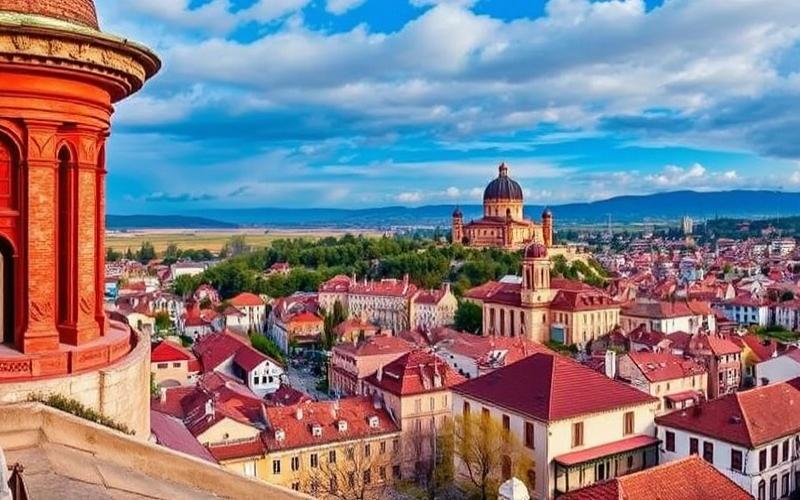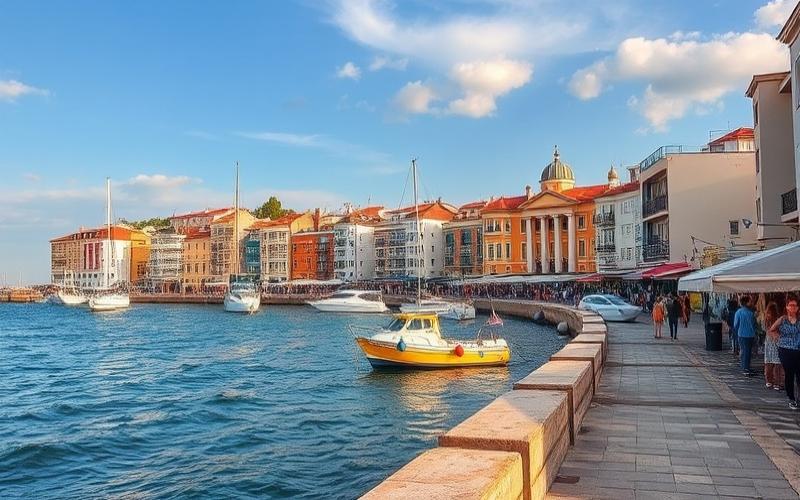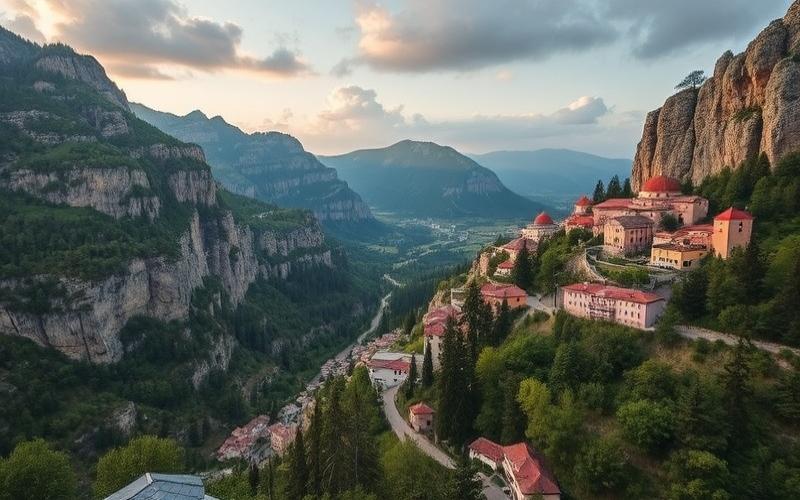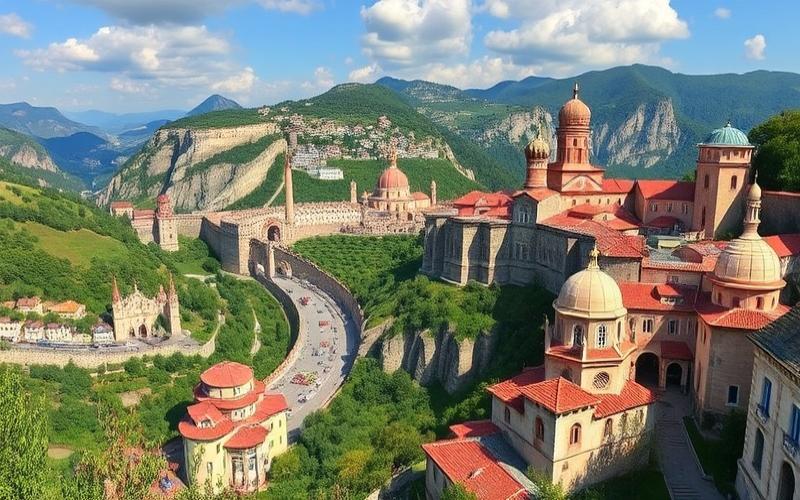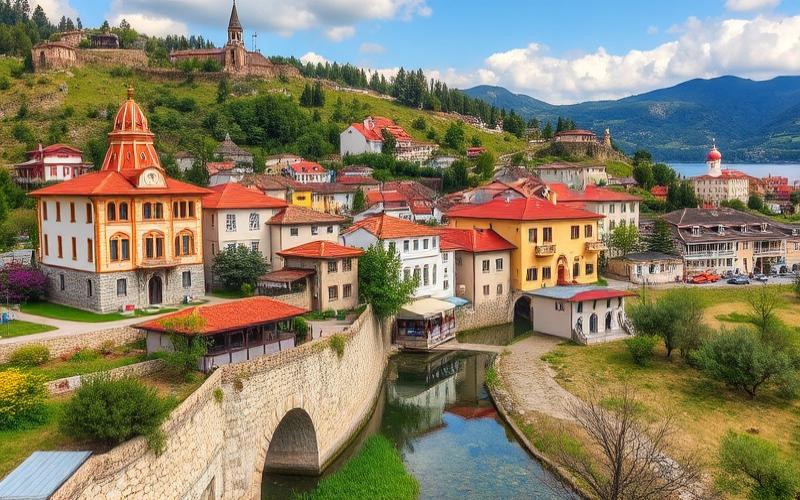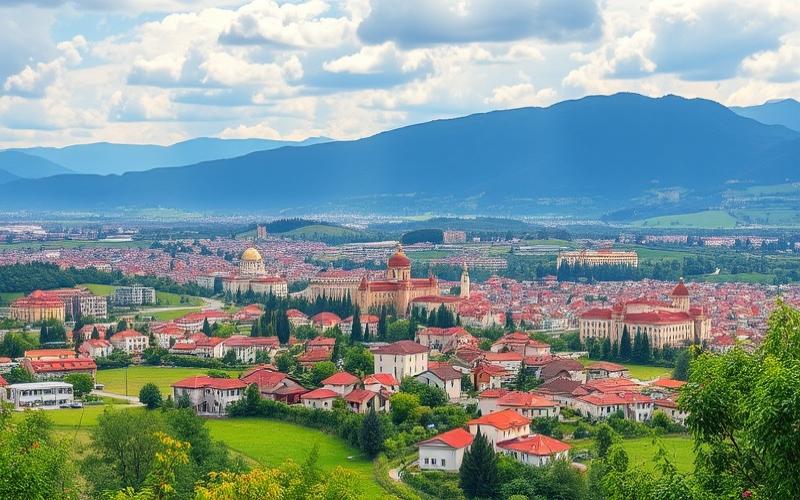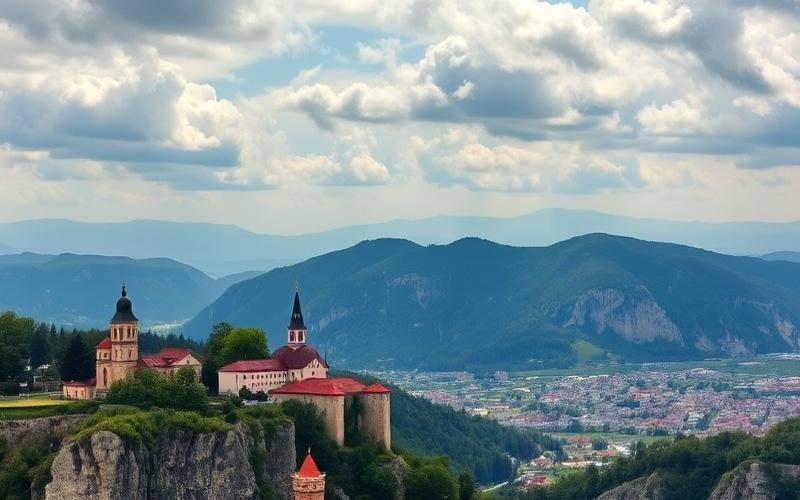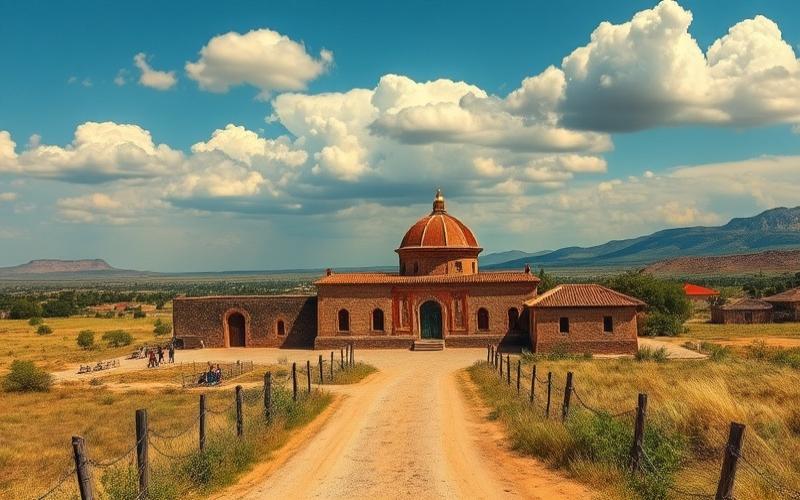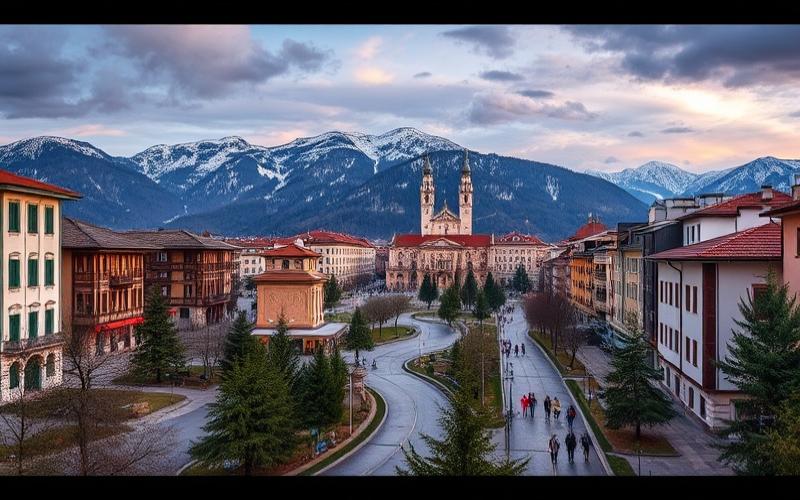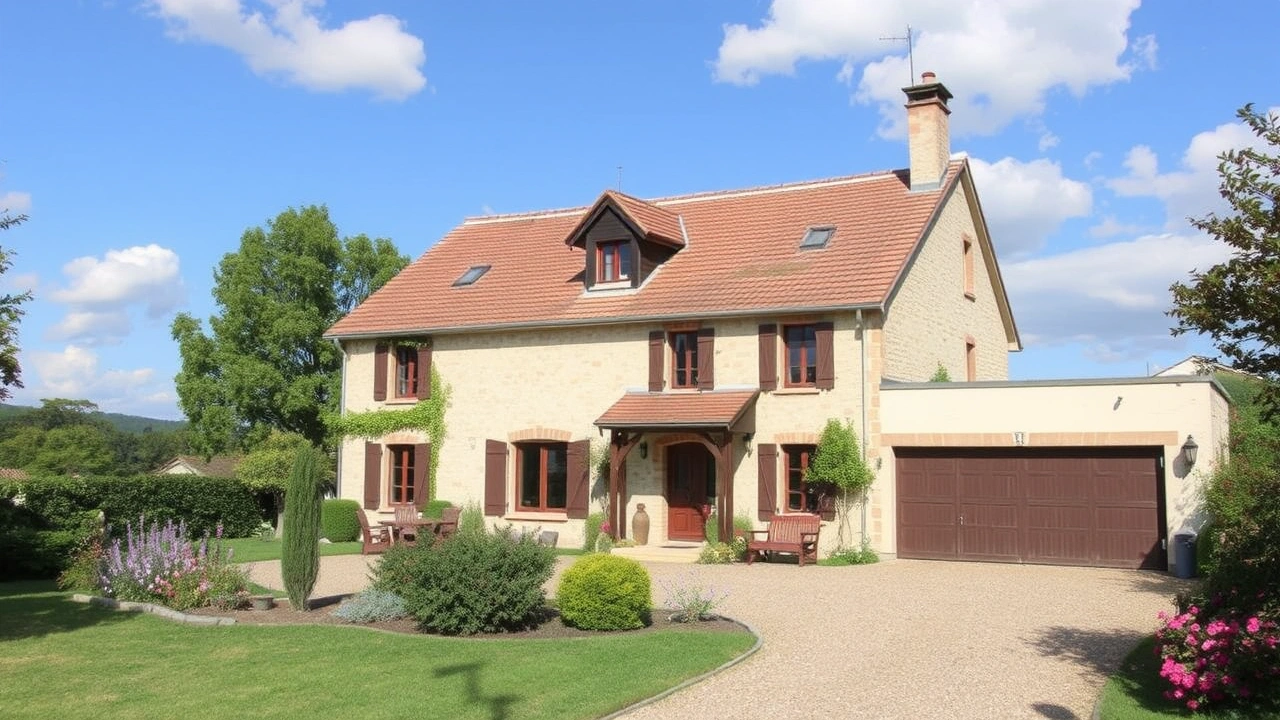
 Published on and written by Cyril Jarnias
Published on and written by Cyril Jarnias
Buying Agricultural Land in Bulgaria may seem like an appealing opportunity for investors looking to capitalize on the expanding European market. However, committing to this purchase requires a thorough understanding of the complex legal aspects specific to this country, which can be confusing for international buyers. Between local regulations, available land types, and restrictions specific to non-residents, it’s essential to be well-informed before taking the plunge. This guide aims to enlighten potential investors about the steps to follow, providing valuable advice and updated information to support your acquisition project with complete peace of mind.
Overview of the Legal Framework for Buying Agricultural Land in Bulgaria
Legal Framework for Buying Agricultural Land in Bulgaria
The legal framework governing the purchase of agricultural land in Bulgaria has undergone significant changes in recent years. Currently, citizens of the European Union can directly acquire agricultural land in Bulgaria, a major advancement compared to previous restrictions. This opening of the agricultural land market to European investors is part of the harmonization of Bulgarian laws with EU legislation.
Regulations for Foreign Buyers
For non-EU nationals, the situation is more complex. They cannot directly purchase agricultural land, but can do so through a Bulgarian company. This approach, although more restrictive, provides access to the Bulgarian land market for international investors. Establishing a local company typically requires the assistance of a Bulgarian lawyer and involves registration fees.
Administrative Procedures and Required Documents
Purchasing agricultural land in Bulgaria involves several administrative steps:
- Verification of the property title with the land registry
- Signing a preliminary contract
- Obtaining a certificate of non-agricultural designation (if necessary)
- Signing the final notarial deed
- Registering the transaction with the land registry
Required documents typically include a valid ID, the seller’s certificate of ownership, and tax documents proving payment of property taxes.
Tax Implications for Foreign Buyers
Foreign buyers are subject to the same tax obligations as Bulgarian buyers. This includes a property transfer tax of approximately 2-3% of the property value, as well as notary fees. It’s important to note that non-residents may be subject to additional taxation in their home country, depending on applicable double taxation agreements.
Recent Reforms and Outlook
The Bulgarian government has recently eased some regulations regarding the conversion of agricultural land to non-agricultural use, aiming to reduce administrative burdens. Additionally, discussions are underway to improve agricultural land consolidation, a major issue for attracting more foreign investment in the sector.
Agricultural Land Market in Bulgaria
The agricultural land market in Bulgaria remains dynamic, with rising price trends in some regions. In the southeastern part of the country, for example, prices increased by about 10% in 2020. However, interest from foreign buyers remains limited, partly due to challenges related to remote management and lack of land consolidation.
Challenges and Opportunities
Despite the gradual market opening, challenges persist for foreign investors. Lack of adequate irrigation infrastructure and fragmentation of agricultural land are major obstacles. Nevertheless, Bulgaria’s agricultural potential, combined with relatively low land prices compared to other EU countries, continues to attract attention from savvy investors.
Good to Know:
In Bulgaria, the acquisition of agricultural land by foreigners is subject to strict regulations, stipulated in the Agricultural Land Law, limiting direct purchase to EU nationals, although solutions like establishing a Bulgarian company simplify the process for other foreigners. The procedures require registration with the Land Registry with documents such as the purchase contract, cadastral plan, and authorization from local authorities. Tax-wise, foreign buyers must consider local taxes on agricultural properties, and while bilateral treaties may influence these transactions, they remain rare. Recently, reforms aim to liberalize the sector, but draft laws introducing new restrictions are also being considered, making consultation with a specialized lawyer essential to navigate this complex legal environment.
How to Avoid Risks Related to Non-Buildable Land
Understanding the Concept of Non-Buildable Land in Bulgaria
In Bulgaria, the legal definition of non-buildable land applies to plots that cannot accommodate new constructions due to regulatory restrictions or physical characteristics. These lands are typically designated as “non-developable” or “rustic” in Bulgarian legislation.
Criteria used to classify land as non-buildable include:
- Lack of basic urban services (water, electricity, access roads)
- Location in protected areas or natural risk zones
- Restrictions imposed by the local urban plan
- Incompatibility with rational use of natural resources
Legal and Financial Consequences for Buyers
Purchasing non-buildable land in Bulgaria with hopes of development can lead to serious consequences:
Criminal penalties of up to 3 years imprisonment and substantial fines can be imposed for illegal construction on non-developable land. Additionally, authorities may order the demolition of unauthorized structures at the owner’s expense.
Financially, the initial investment may be lost if the land cannot be developed as planned. Legal and administrative costs to attempt changing the land’s status can also prove considerable.
Essential Preliminary Checks
Before any purchase, it’s crucial to conduct thorough checks:
– Obtain a detailed zoning report from local authorities – Consult a lawyer specialized in Bulgarian real estate law to review all documents – Hire a local surveyor or real estate expert to assess the land’s actual potential – Check future urban plans that could affect the land’s status
These steps will provide a clear understanding of the possibilities and constraints related to the land.
Negotiation Strategies and Protective Clauses
When negotiating the purchase of potentially non-buildable land:
– Include a conditional clause related to obtaining a building permit – Negotiate a lower price reflecting the land’s usage restrictions – Allow for an extended study period to conduct all necessary checks – Insert a termination clause if the land’s status differs from the seller’s declarations
Practical Tips to Avoid Pitfalls
– Never rely solely on verbal statements from the seller or real estate agent – Personally visit the land and its surroundings – Check the history of building permit applications on the plot – Be wary of offers that seem too good to be true, especially from rushed sellers – Always have all documents officially translated into Bulgarian
By following these recommendations, foreign buyers can significantly reduce risks associated with acquiring non-buildable land in Bulgaria.
Good to Know:
In Bulgaria, land is considered non-buildable if it doesn’t meet zoning criteria defined by local legislation, such as lack of access to necessary infrastructure or specific classification for environmental protection. Acquiring agricultural land thinking it can be developed without proper checks can lead to legal, financial consequences and block construction plans. Potential buyers should obtain a zoning report and consult a lawyer specialized in real estate law to ensure the land’s buildability. Hiring a surveyor or real estate expert can provide valuable local information for accurate land assessment. During negotiation, include clauses protecting your interests, such as a suspensive condition tied to the validity of building permits. Finally, avoiding common pitfalls requires verifying all property rights documents upfront and ensuring the seller has no tax arrears.
Understanding Rural Zoning in Bulgaria for an Informed Purchase
Types of Rural Zoning in Bulgaria
Bulgaria displays remarkable diversity in its rural zoning, reflecting the richness of its landscapes and natural resources. The country is characterized by a mosaic of agricultural, forest, and protected areas, each with its own specific features and regulations.
Agricultural Areas
Bulgarian agricultural areas are distinguished by their fertility and productivity. The Danube Plain and the Thracian Plain are the country’s agricultural jewels, with their rich chernozem soils. These regions are primarily dedicated to growing cereals, sunflowers, beets, and tobacco. In these areas, land purchase and use are generally more flexible, allowing for intensive agricultural exploitation.
Forest Areas
Forest areas, covering approximately 3.65 million hectares, are mainly located in mountainous regions like Rila, Rhodope, and the Balkan Mountains. These areas are subject to stricter regulations regarding use and construction. Forestry is regulated to ensure resource sustainability.
Protected Areas
Bulgaria has numerous protected areas, including national parks and nature reserves. These areas benefit from the highest level of protection, with severe restrictions on construction and land use. Purchasing land in these areas is often impossible or very limited.
Impact of Zoning on Land Purchase and Use
Zoning significantly influences land purchase and use possibilities in Bulgaria. In agricultural areas, buyers can generally use the land for agricultural purposes, but construction of non-agricultural buildings may be limited. Forest and protected areas have greater restrictions, often limiting construction and commercial exploitation.
Regulations and Zoning Changes
Zoning changes in Bulgaria are governed by local and national regulations. The zoning change process can be lengthy and complex, requiring approval from multiple authorities. Municipalities play a key role in this process, but final decisions may involve national authorities, particularly for protected areas.
Tips for Potential Buyers
For potential investors, it’s crucial to check a land’s zoning before purchase. It’s recommended to consult the local urban plan with the relevant municipality. Additionally, hiring a local lawyer specialized in real estate law can prove valuable for navigating the complexities of Bulgarian zoning.
Steps for Zoning Changes
If a zoning change is desired, the following steps are generally necessary:
- Submit a detailed application to the local municipality
- Prepare an environmental impact assessment if necessary
- Obtain approval from relevant regional and national authorities
- Participate in public consultations
It’s important to note that the process can take several months, even years, and success is not guaranteed.
Good to Know:
In Bulgaria, types of rural zoning mainly include agricultural, forest, and protected areas, each with distinct rules regarding land purchase and use. Agricultural areas generally allow farming and livestock, but construction restrictions require particular attention. Forest areas are often limited to preservation and controlled timber exploitation, while protected areas, such as national parks, impose severe restrictions to protect biodiversity. Local and national regulations can make zoning changes complex, often subject to rigorous administrative procedures and lengthy negotiations. Potential buyers must absolutely consult the local cadastre to verify zoning before any purchase, and seek advice from a lawyer specialized in Bulgarian real estate law to understand formalities and potential recourse if modification is desired.
Required Permits for Building in the Bulgarian Countryside
Types of Permits for Construction in Bulgarian Rural Areas
In Bulgaria, construction in rural areas generally requires obtaining a building permit. This document is mandatory for most construction works, except for certain minor projects. Specific permit types include:
– Standard building permit for new constructions – Renovation permit for existing buildings – Demolition permit for removing structures
Administrative Steps to Obtain Permits
To obtain a building permit in Bulgarian rural areas, these steps must be followed:
- Property title of the land
- Detailed plans of the construction project
- Environmental assessment (if necessary)
Regulations Influencing Permit Acquisition
Several regulations can affect the permit acquisition process:
– The Spatial Development Act which defines construction rules – Local development plans that determine buildable areas – Environmental standards to comply with, particularly in protected areas
It’s crucial to comply with these regulations to avoid potentially serious legal consequences, such as fines or the obligation to demolish non-compliant structures.
Practical Tips to Facilitate the Process
To facilitate obtaining necessary permits:
– Consult a lawyer specialized in Bulgarian real estate law – Use a local real estate agent familiar with regulations – Carefully prepare your file before submitting to authorities – Anticipate administrative delays which can be lengthy – Maintain communication with municipal services throughout the process
By following these recommendations and scrupulously respecting regulations, you’ll increase your chances of obtaining the required permits for your construction project in the Bulgarian countryside.
Good to Know:
To build in rural areas in Bulgaria, it’s essential to obtain a building permit issued by the local municipality, after approval by urban planning agencies. Once the permit is acquired, it’s crucial to respect national and local regulations, which may include restrictions on materials or architecture. Administrative steps begin with submitting a detailed construction plan and consulting with a recognized architect. In case of non-compliance, legal sanctions may occur, ranging from fines to demolition of the structure. To simplify this process, it’s strongly advised to work with a local lawyer expert in real estate law or a real estate agent who understands local bureaucratic nuances and can offer specific advice. Also consulting an architect with good knowledge of local customs helps ensure the project complies with all legal requirements.
Disclaimer: The information provided on this website is for informational purposes only and does not constitute financial, legal, or professional advice. We encourage you to consult qualified experts before making any investment, real estate, or expatriation decisions. Although we strive to maintain up-to-date and accurate information, we do not guarantee the completeness, accuracy, or timeliness of the proposed content. As investment and expatriation involve risks, we disclaim any liability for potential losses or damages arising from the use of this site. Your use of this site confirms your acceptance of these terms and your understanding of the associated risks.






